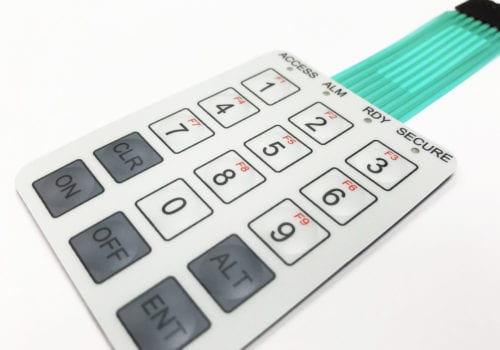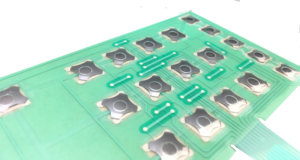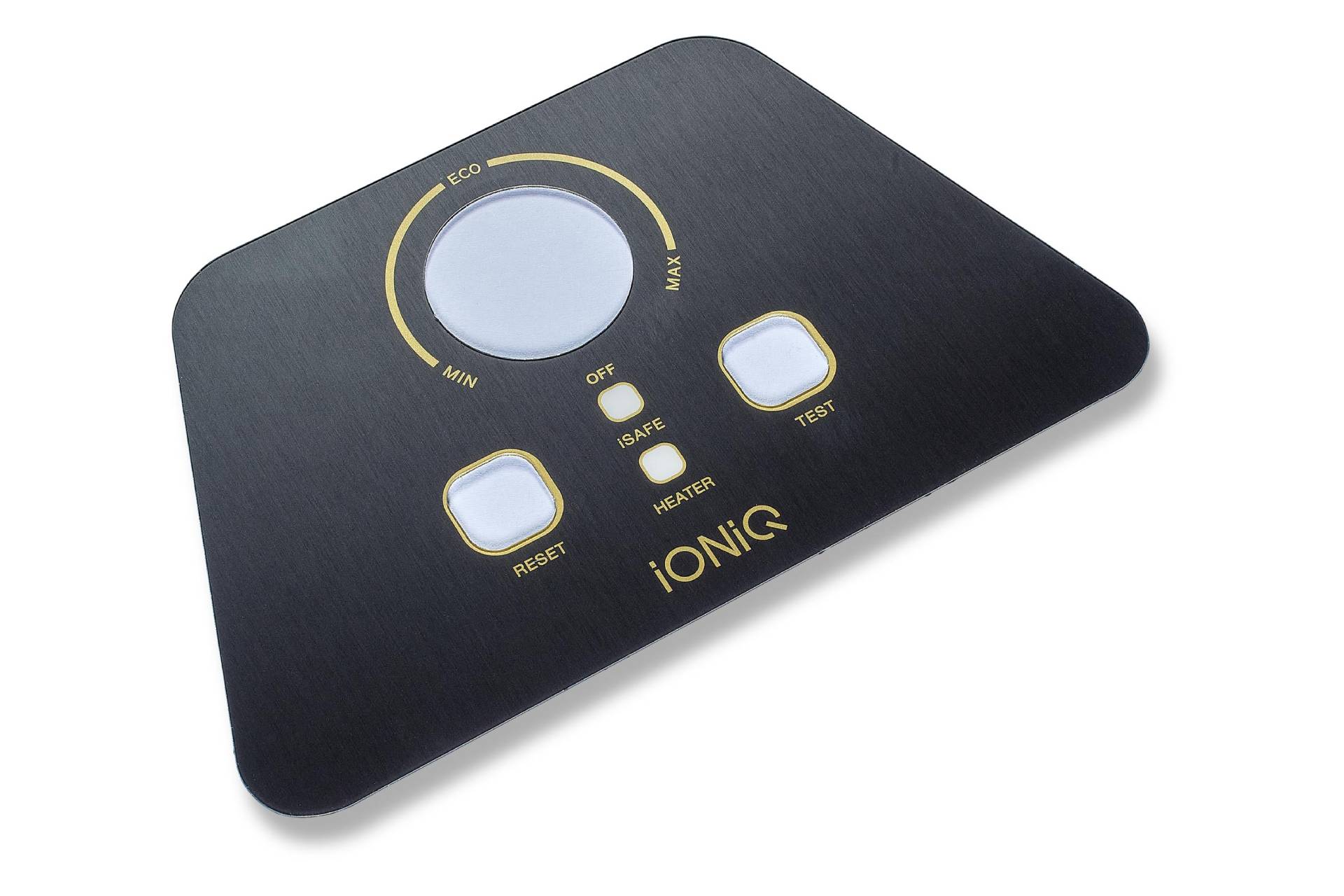Membrane Switch Manufacturer Specializing in Integrated Product Integration
Membrane Switch Manufacturer Specializing in Integrated Product Integration
Blog Article
Understanding the Value of Membrane Switch in Modern Electronics and Their Applications
Membrane switches over act as an important part in contemporary electronic devices, supplying an efficient user interface for customer communication. Their adjustable and light-weight nature makes them ideal for a variety of applications throughout diverse markets. Recognizing their crucial elements and advantages can provide insights into their growing relevance. As innovation remains to advance, the advancement of Membrane switches over questions regarding their future applications and layout developments. What exists in advance in this dynamic field?

What Are Membrane Buttons?
Membrane switches are necessary components in contemporary electronics, acting as user interfaces that assist in interaction between gadgets and individuals. These buttons consist of a number of layers, including a visuals overlay, an adhesive layer, and a circuit layer, all of which work with each other to produce a resilient and useful user interface. The style permits for a flat, inconspicuous remedy that can be tailored concerning dimension, shape, and aesthetic look, making them appropriate for different applications, from consumer electronics to medical devices. The responsive responses provided by Membrane changes improves customer experience, while their resistance to dust and dampness makes them excellent for challenging environments. Furthermore, Membrane buttons can include features such as backlighting and printed graphics, additionally increasing their usability. Their flexibility and robustness make them a preferred choice in sectors where dependability and convenience of use are extremely important, eventually adding to the smooth procedure of contemporary digital devices.
Secret Components of Membrane Changes
While numerous parts add to the performance of a membrane layer button, three main layers play substantial roles in its style and operation. The leading layer, commonly made from a durable polymer, acts as the user interface for individual communication, typically featuring printed graphics and icons. Beneath this is the spacer layer, which preserves the necessary range in between the top layer and the circuit layer. This spacer layer assurances that the switch triggers just when pushed, protecting against accidental inputs. The circuit layer contains conductive traces that finish the electrical circuit when the top layer is dispirited. These traces can be made from numerous materials, consisting of copper or silver. Together, these components create a robust and reliable device that is compact and flexible, appropriate for a vast range of digital applications, from family home appliances to medical gadgets. Understanding these key components is essential for valuing the general functionality of Membrane buttons.
Advantages of Making Use Of Membrane Switches

Membrane Switch Manufacturing Refine
Recognizing the Membrane button production process exposes the intricate actions involved in generating these important components. The process typically starts with the style stage, where formats and specs are produced utilizing specialized software application. Following this, the visuals overlay is printed on an adaptable substrate, frequently using high-resolution printing techniques to assure quality and precision.Next, the glue layers are applied, which offer to bond the numerous components together. The circuit layers, made from conductive inks or products, are after that published onto a separate substrate. These layers are thoroughly straightened and laminated flooring to create a practical switch.After setting up, the buttons undergo examining to confirm performance and durability. Quality control steps are carried out throughout the procedure to recognize and rectify any kind of problems. The completed Membrane switches are packaged and prepared for distribution, ready to meet the demands of modern-day electronic applications.
Applications of Membrane Switches in Various Industries
Membrane switches are progressively used throughout various markets, particularly in medical tools and consumer electronic devices. In the medical field, they offer reliable control user interfaces for gadgets that require exact procedure. In consumer electronic devices, these switches enhance individual communication by supplying responsive and sleek interfaces.
Medical Tools Control
Many modern clinical tools use Membrane switches for streamlined procedure and enhanced user interaction. These buttons supply a reputable, sturdy interface for a range of applications, consisting of analysis devices, patient tracking systems, and medical instruments. Their customizable styles permit details designs that can suit the unique needs of healthcare specialists, ensuring user-friendly navigating and efficient access to essential features. Furthermore, Membrane switches are immune to impurities, making them ideal for sterilized settings. The tactile comments they supply can enhance user confidence, decreasing the risk of mistakes throughout essential medical procedures. In general, the integration of Membrane switches in medical tools significantly adds to enhanced operational efficiency and patient security in health care settings.
Consumer Electronics Interfaces
In the domain name of consumer electronic devices, Membrane switches play an essential function in enhancing individual interfaces across a vast array of tools. These switches are integral to items such as remote controls, microwaves, and gaming consoles, providing a effective and user-friendly interface. Their layout permits a seamless integration of graphics and performance, allowing suppliers to create smooth, modern-day navigate to this site aesthetics without compromising usability. Membrane buttons are also understood for their durability, typically withstanding comprehensive use and exposure to different ecological problems. Additionally, they can include attributes like backlighting and tactile feedback, additional improving the individual experience. As customer demands for sophisticated yet instinctive interfaces grow, Membrane switches over continue to be a crucial element ahead of time digital device performance.
Layout Considerations for Membrane Switches
Designing effective Membrane switches needs mindful attention to numerous variables that influence both capability and customer experience. One crucial factor to consider is the selection of materials, as they can affect longevity, tactile responses, and visual charm. Choosing a suitable adhesive is necessary for guaranteeing lasting adhesion and resistance to ecological factors.In enhancement, the layout and design of the switch have to accommodate customer communication, with switch sizes and spacing optimized for convenience of usage. The unification of graphics and labeling need to focus on clarity and visibility under various illumination conditions.Consideration of electric characteristics, such as actuation force and switch level of sensitivity, will boost the responsiveness of the Membrane button. The design must accommodate producing processes to assure cost-effectiveness and prompt manufacturing. Overall, a well-balanced style boosts both the functionality and the individual experience of Membrane switches in modern electronics.

Future Trends in Membrane Switch Modern Technology
As technology proceeds to develop, Membrane buttons are positioned to integrate brand-new advancements that will improve their capability and application in numerous fields. One considerable fad is the incorporation of flexible and long lasting products, which will increase the life-span and reliability of these switches. Enhanced surface appearances and adjustable graphics are also prepared for, permitting even more user-friendly individual interfaces.Moreover, the integration of smart innovation, such as touch-sensitive surfaces and haptic feedback, is anticipated to boost individual interaction, making Membrane switches a lot more responsive and engaging. In addition, breakthroughs in published electronics will certainly allow much more complex wiring within thinner profiles, further increasing design possibilities.Sustainability will additionally play an important duty in future developments, as makers explore green materials and production procedures. Generally, these patterns will certainly assure that Membrane changes stay indispensable and appropriate in an interconnected and increasingly digital globe.
Frequently Asked Concerns
Just How Do Membrane Changes Contrast to Traditional Mechanical Switches?
Membrane switches deal benefits over traditional mechanical buttons, including decreased size, lighter weight, and improved resilience. They normally offer a secured surface area, improving resistance to dust and wetness, making them optimal for diverse applications.
What Products Are Commonly Used in Membrane Switch Building And Construction?

Can Membrane Switches Over Withstand Extreme Environmental Issues?
Membrane switches can endure extreme environmental problems, depending upon their design and products. Premium constructions frequently feature sturdiness versus temperature changes, humidity, and exposure to chemicals, making them appropriate for different demanding applications across markets.
The Length Of Time Do Membrane Switches Over Generally Last Prior To Failing?
Membrane changes generally exhibit a lifespan varying from 1 to 10 million actuations, depending on elements such as usage regularity, ecological problems, and making quality. Routine upkeep can prolong their sturdiness and operational integrity considerably.
Are Membrane Changes Customizable for Specific Applications?
Membrane buttons are without a doubt adjustable for particular applications. They can be customized in design, dimension, and functionality, allowing suppliers to satisfy her comment is here unique individual demands and enhance product appearances while preserving functional performance and sturdiness. Membrane buttons are essential components in modern-day electronic devices, serving as customer interfaces that assist in interaction in between tools and individuals. The tactile responses given by Membrane switches over boosts individual experience, while their resistance to dust and moisture makes them see this here excellent for testing atmospheres. The incorporation of graphics and labeling must prioritize clarity and presence under different illumination conditions.Consideration of electrical features, such as actuation force and button sensitivity, will certainly boost the responsiveness of the Membrane switch. Improved surface structures and customizable graphics are likewise prepared for, enabling for even more instinctive user interfaces.Moreover, the integration of smart technology, such as touch-sensitive surface areas and haptic comments, is anticipated to enhance customer interaction, making Membrane changes much more responsive and appealing. Membrane switches deal benefits over traditional mechanical switches, consisting of reduced dimension, lighter weight, and enhanced toughness.
Report this page